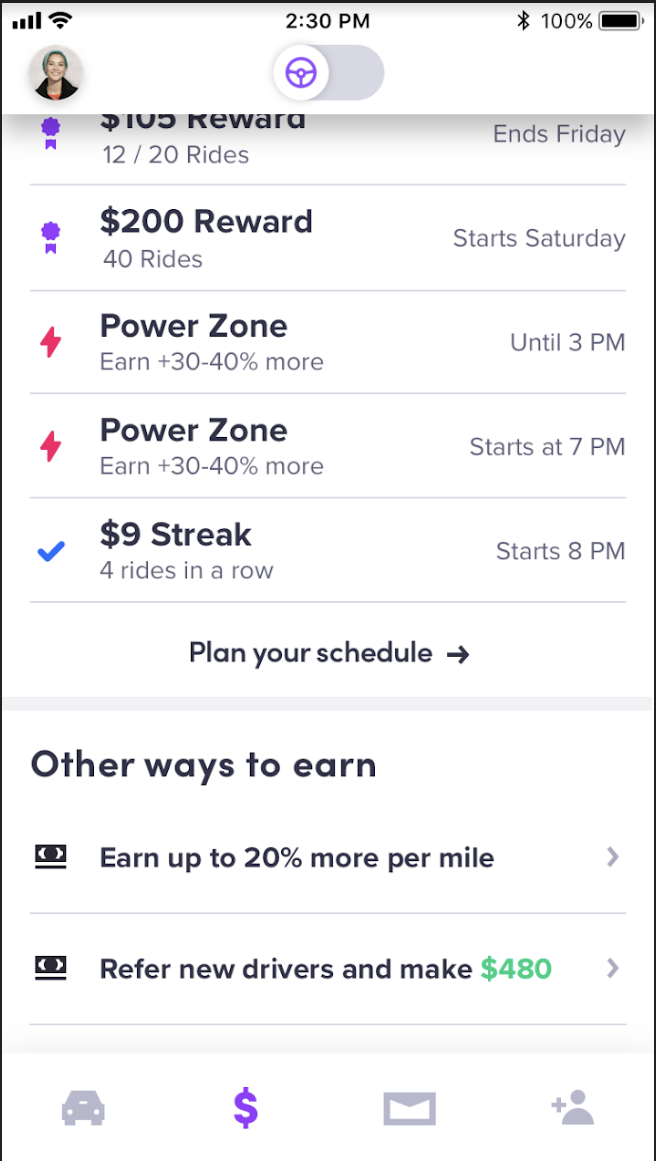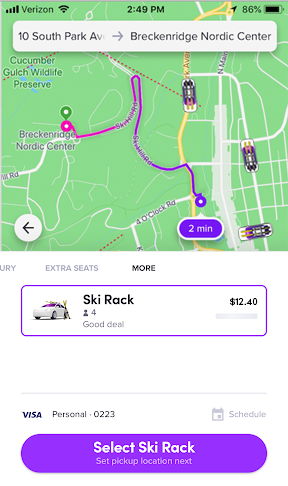Safety is fundamental to everything we do at Lyft, and has been since day one. As our community has grown, so have our efforts to protect it. That’s meant a continual investment in community safety, driven by a number of new product features and policies designed to keep our riders and drivers safe. In short,… Continue reading Lyft: Providing Expert Help to Riders and Drivers Who Need Support
Category: Mobility Companies
Lyft: Cleveland Cavaliers and Lyft — Supporting Nonprofits Together
We’re excited to announce that we’re expanding our partnership with the Cleveland Cavaliers and Rocket Mortgage FieldHouse. Now, we’re not only the official rideshare partner of the Cavaliers, we’re working together to support the important work of nonprofit organizations in Northeast Ohio and across the nation. “We’re proud to work with the Cleveland Cavaliers to… Continue reading Lyft: Cleveland Cavaliers and Lyft — Supporting Nonprofits Together
Lyft: Earn More Per Mile for Smart Driving
Safe driving is its own reward. But starting in December, Express Drive renters can earn more for safe driving. Just meet your personalized smart driving and ratings targets (as explained below), and you could earn a rate increase of up to 20% per mile. How it Works Today you earn a standard Per Mile rate,… Continue reading Lyft: Earn More Per Mile for Smart Driving
Lyft: Self-Driving Research in Review: ICCV 2019
By the Level 5 Research Team: Peter Ondruska, Luca Del Pero, Qi Dong, Anastasia Dubrovina and Guido Zuidhof ICCV, along with CVPR, is one of the main international computer vision conferences. It happens bi-annually, with this year’s edition taking place in Seoul, South Korea. Out of the 1076 papers presented, we summarized the most relevant… Continue reading Lyft: Self-Driving Research in Review: ICCV 2019
Lyft: Lyft Co-Founder and President to Participate in Fireside Chat at the RBC Capital Markets 2019 Technology, Internet, Media and Telecommunications Conference
SAN FRANCISCO, Nov. 15, 2019 (GLOBE NEWSWIRE) — Lyft, Inc. (Nasdaq:LYFT) announced today that John Zimmer, Co-Founder and President, will participate in a fireside chat at the RBC Capital Markets 2019 Technology, Internet, Media and Telecommunications Conference on Wednesday, November 20, 2019. Mr. Zimmer is scheduled to appear at 9:40 a.m. Eastern Time.A live webcast… Continue reading Lyft: Lyft Co-Founder and President to Participate in Fireside Chat at the RBC Capital Markets 2019 Technology, Internet, Media and Telecommunications Conference
Lyft: Lyft Announces Record Third Quarter Results
Third quarter revenue grew to $956 million, up 63% year-over-yearRaising outlook for fiscal 2019SAN FRANCISCO, Oct. 30, 2019 (GLOBE NEWSWIRE) — Lyft, Inc. (Nasdaq:LYFT) today announced financial results for its third quarter ended September 30, 2019. “Our third quarter results demonstrated the significant progress Lyft has made on our path to profitability. Record revenue was generated… Continue reading Lyft: Lyft Announces Record Third Quarter Results
Lyft: Lyft Co-Founders to Participate in Fireside Chat at WSJ Tech Live
SAN FRANCISCO, Oct. 17, 2019 (GLOBE NEWSWIRE) —Lyft, Inc. (Nasdaq:LYFT) announced today that Logan Green, Co-Founder and Chief Executive Officer, and John Zimmer, Co-Founder and President, will participate in a fireside chat at WSJ Tech Live on Tuesday, October 22, 2019. Mr. Green and Mr. Zimmer are scheduled to appear at 9:00 a.m. Pacific Time.A… Continue reading Lyft: Lyft Co-Founders to Participate in Fireside Chat at WSJ Tech Live
Lyft: Transgender Awareness Week: Our Stories
Honoring Transgender Awareness Week, we present a collection of diverse voices from Lyft employees. They hold such strength yet show these individuals’ willingness to be vulnerable in front of the world in order to foster understanding and help others. Their journeys may differ, but these brave people share in common the conviction and courage to… Continue reading Lyft: Transgender Awareness Week: Our Stories
Lyft: Lyft Is Your Ticket to Fresh Powder
Whether you’re ready to hit the bowls or the bunny slopes, we’ll get you and your gear to the mountain smoothly with Ski Rack mode. When you request a ride with Ski Rack mode, you’ll be picked up in a car that’s fully equipped to handle your skis and snowboards — so you can focus… Continue reading Lyft: Lyft Is Your Ticket to Fresh Powder
Lyft: Improving Our Interview Experience with Byteboard
At Lyft, our mission is to improve people’s lives with the world’s best transportation. To deliver on our mission, we need to attract the best, most diverse talent pool that represents the breadth of the communities we serve. This year, our University Programs Team partnered with Byteboard, an identity-blind technical interview platform that assesses for… Continue reading Lyft: Improving Our Interview Experience with Byteboard



